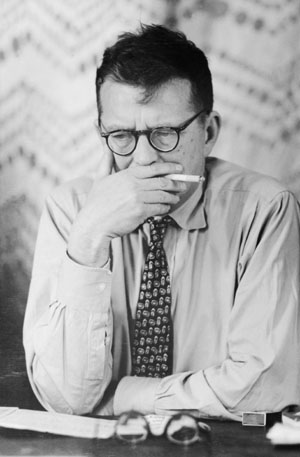
IN 1906
US FACTS
President: Theodore Roosevelt
Vice President: Charles W. Fairbanks
Population: 85,450,000
Federal spending: $0.57 billion
Unemployment: 1.7%
Cost of a first-class stamp: $0.02
WORLD EVENTS
More than 500 people are killed during the San Francisco earthquake and ensuing three-day fire.
President Roosevelt sails to the Panama Canal Zone. It is the first time a U.S. president has travelled outside the country while in office.
Reginald Fessenden invents wireless telephony, a means for radio waves to carry signals a significant distance.
Upton Sinclair exposes the public-health threat of the meat-packing industry in The Jungle.
Roald Amundsen, Norwegian explorer, locates Magnetic North Pole.
Ethiopia declared independent in a tripartite pact; country is divided into British, French, and Italian spheres of influence.
Finland is the first European country to give women the right to vote.
IN SPORTS
World Series
Chicago White Sox d. Chicago Cubs (4-2)
Stanley Cup
Montreal Wanderers
Wimbledon
Women: Dorothea Douglass d. M. Sutton (6-3 9-7)
Men: Laurie Doherty d. F. Riseley (6-4 4-6 6-2 6-3)
Kentucky Derby Champion
Sir Huon
NCAA Football Champions
Princeton (9-0-1)
1906 Olympics – Athens
The Olympic movement returned to Athens for the Intercalated Games of 1906.
The mutual desire of Greece and Baron de Coubertin to recapture the spirit of the 1896 Games led to an understanding that the Greeks would host an interim games every four years between Olympics.
Nearly 900 athletes from 20 countries came to Athens, including, for the first time, an official American team picked by the USOC.
As usual, the U.S. dominated track and field, taking 11 of 21 events, including double wins by Martin Sheridan (shot put and freestyle discus), Ray Ewry (standing high and long jumps) and Paul Pilgrim (400 and 800 meters). The previously unknown Pilgrim had been an 11th-hour addition to the team.
Verner Järvinen, the first Finn to compete in the Olympics, won the Greek-style discus throw and placed second in the freestyle discus. He returned home a national hero and inspired Finland to become a future Olympic power.
The Intercalated Games were cancelled due to political unrest in 1910 and never reappeared. Medals won are considered unofficial by the IOC.
IN SCIENCE
English biochemist Frederick Hopkins concludes that vitamins are essential and that a lack of vitamins causes scurvy and rickets.
British geologist and seismologist Richard Dixon Oldham notes that earthquake waves travel more slowly when they pass through the center of the Earth, and suggests that our planet has a dense core.
Nobel Prizes
Physics - Sir Joseph John Thomson, for investigations on passage of electricity through gases
Chemistry - Henri Moissan , for isolation of fluorine, and introduction of electric furnace
Medicine - Camillo Golgi, Santiago Ramón y Cajal, for work on structure of the nervous system
Literature - Giosuè Carducci
Peace - Theodore Roosevelt
Also on this day…In 1775, Ethan Allen was captured by the British.
In 1789, The first Congress adopted 12 amendments to the Constitution and sent them to the states for ratification. The first ten became the Bill of Rights. In 1890, Wilford Woodruff, president of the Mormon church, renounced the practice of polygamy. This paved the way for Utah's acceptance as a state in 1896. In 1957, Nine black children were escorted to Central High School in Little Rock, Arkansas, under heavily armed guard, because of racial violence. In 1981, Sandra Day O'Connor was sworn in as the first female justice on the Supreme Court. In 2003, It was reported that more than 14,000 had lost their lives in France in a summer heat wave.
Born on this day, Claude Perrault: architect, scientist, and physician (1613); William Faulkner: American novelist (1897); Mark Rothko: painter (1903); Sir Colin Davis: conductor (1927); Barbara Walters: TV commentator (1931); Glenn Gould: pianist and composer (1932); Michael Douglas: actor (1944); Christopher Reeve: actor, director (1952); Heather Locklear: actress (1961); Catherine Zeta-Jones: actress (1969).
(see lots more here: http://en.wikipedia.org/wiki/1906)
Also keep an eye out for posts from Dr. Dick for Shostakovich's music. You read about my previous Shostakovich posts here and here.

No comments:
Post a Comment